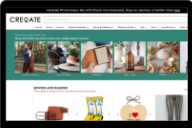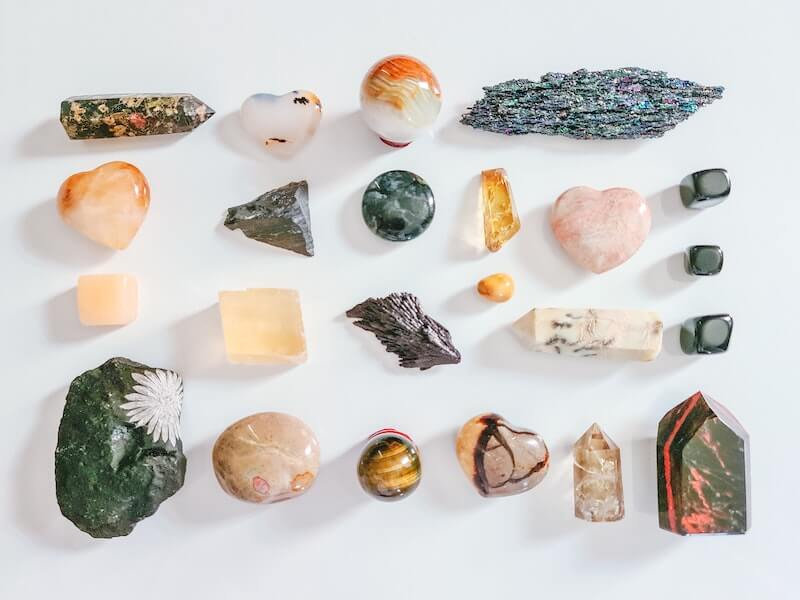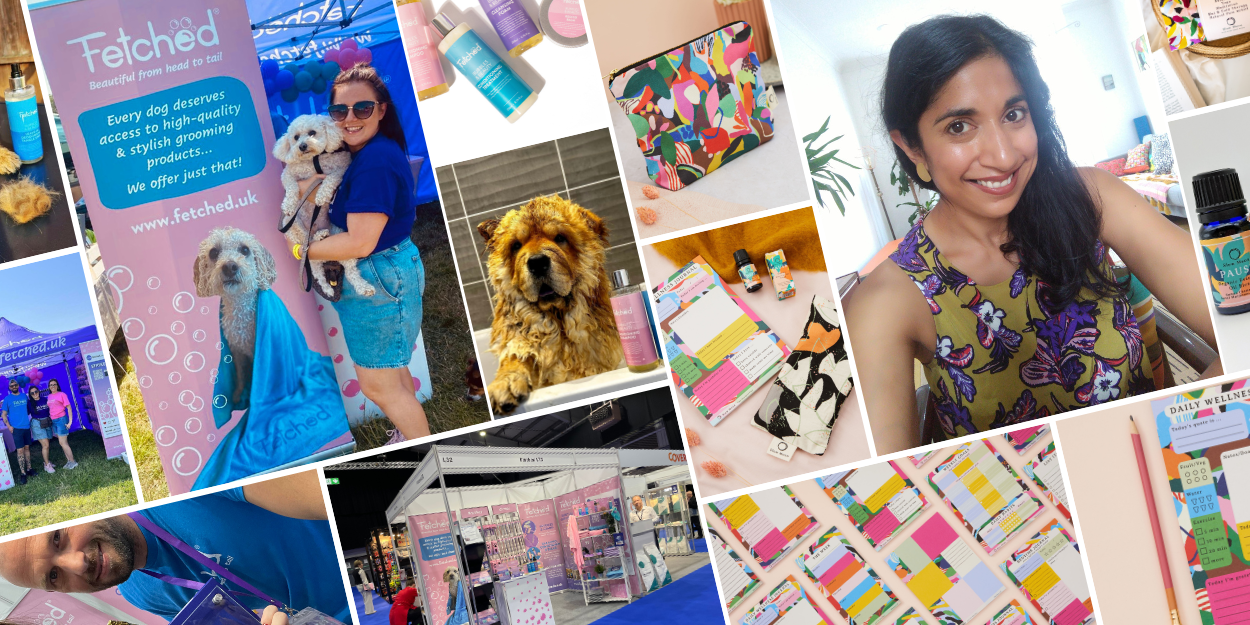According to a study from Guidant Financial, 27% of small businesses are female founded — and this number is only growing. Not surprisingly, 26% of these were started with the goal of pursuing a passion, retail and ecommerce being the leading segment among them, whether the focus is on beauty, health, or fitness. Taking a look at some of the world’s leading female founders, today we’re highlighting those who have crafted an empire out of a single vision, or even shattered boundaries amongst barriers like the pandemic. Passion is at the core of what they have achieved.
On this page
- Emily Weiss: Glossier
- Nancy Twine: Briogeo
- Sara Blakely: Spanx
- Shan-Lyn Ma: Zola
- Payal Kadakia: ClassPass
Let’s dive into these women worth watching, those who have scaled their start-ups into giants and shifted paradigms within their respective industries.

Image: The New York Times
1. Emily Weiss: Glossier
Emily Weiss is the founder and CEO of the cosmetics company Glossier, a digital-first, billion-dollar beauty brand, which began life as blog Into the Gloss, which focused on beauty and wellness-centric profiles of women.
Working weekends and late nights during the week on her blog after a long shift at Vogue, Weiss wanted to expand. She began approaching investors with a curated e-commerce platform idea. In October 2014, Glossier was born, using the $2 million she had raised in funding to build a small team and launch her new platform.
“When I started Into The Gloss, I wanted to make beauty as much of an element of personal style as fashion,” Emily said. “As I interviewed hundreds of women, I became more and more aware of how flawed the traditional beauty paradigm is. It has historically been an industry based on experts telling you, the customer, what you should or shouldn’t be using on your face.”
Lessons from Emily
1. Put the customer first, from products to content and everything in between
2. Build a community authentically, they’ll stick around for the ride
3. Keep your business lean and agile, ready to adapt to changes in a fast-paced industry

Image: Health Magazine
2. Nancy Twine: Briogeo
Hair care is anything but one size fits all. After Nancy Twine realized there were few curly, natural texture-focused products on the market, she quit her Wall Street job that left her unfulfilled to pursue her own hustle out of her miniscule NYC studio apartment. This took shape as Briogeo (“Brio” Italian for “vibrant and full of life,” and “Geo” Latin for “of Earth and nature,”), a back-to-basics cosmetic line designed for diverse hair types. Pouring her heart, and every available eco-friendly oil, extract, or essence on the market, into the products, they ended up on the shelves of beauty giants like Sephora and Ulta within the first year of launch.
“My hope is that everyone — no matter their skin color, hair texture, ethnicity, and background — feels understood and spoken to when they experience Briogeo’s products, messaging, and marketing,” she said.
Briogeo wasn’t Nancy’s first waltz into the beauty-verse. She spent her childhood in the kitchen with her grandmother, watching her concoct from-scratch beauty potions with natural ingredients like plants and fruits grown in her garden. After playing skincare sous chef as a 5 year old and learning hardwork and compassion from her mother’s dedication to her patients as a physician, she carried these lessons into the inclusive beauty empire she has built today.
Whether it’s expanding her product categories or finding creative new ways to reach the market, Nancy seeks to constantly evolve herself and her brand. “What’s awesome about being a female founder is the ability to inspire other women who are ready to step out and take a risk and do their own thing,” she said. “Women have a different level of responsibility. We’re focused on not just what we’re trying to do, but also on helping other females trying to do something similar.”
Lessons from Nancy
1. Challenges don’t mean you should stop doing what you’re doing. It just means you need to get creative and figure out another way.
2. Keep a daily gratitude list and every night before going to bed, jots down an uplifting note for herself to wake up to.
3. Embrace and accept failure, learn to be resilient, and lean on your network, whether that’s friends, family, or mentors.
4. Always pay it forward
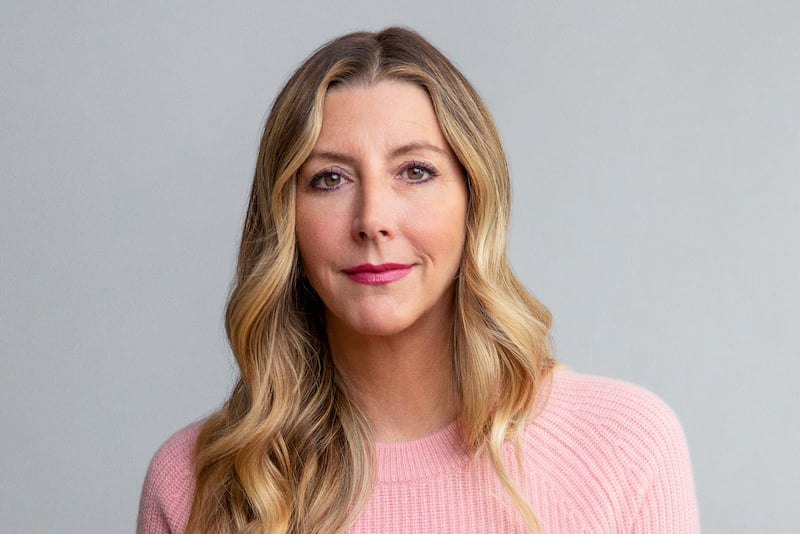
Image: Fortune.com
3. Sara Blakely: Spanx
In 2012, Sara Blakely, founder of Spanx, was featured in Forbes as the youngest female self-made billionaire in the world. Last year, Spanx sold a majority stake to the private equity firm Blackstone Group, which was valued at $1.2 billion. She celebrated by giving each of Spanx’s 750 employees $10,000 in cash, and two first-class plane tickets to anywhere in the world.
Spanx was born, as many great businesses are, from the solving of a simple problem. Blakely was forced to wear tights for her sales role in Florida in the late 1990s, and while she liked that the tights held her in and smoothed out any lines from her underwear, she wasn’t a fan of seeing them through her open-toed shoes. She experimented with cutting the ends off her tights, and the idea for Spanx was born.
Blakely spent a whole year, and $5,000 in savings, developing the first Spanx prototype, which she changed into in front of a buyer for the Neiman Marcus Group to prove its effectiveness. And it worked; Spanx was stocked in seven Neiman Marcus stores, with Bloomingdales, Saks and Bergdof Goodman following closely behind. The rest, as they say, is history.
Blakely founded Spanx without ever having taken a business class, or launched a product. She wrote her own patent, never took any outside investment, and transformed Spanx into the global powerhouse it is today — 21 years after she first cut the ends off a pair of tights.
Lessons from Sara
1. Be the customer. Truly understand what your customers are looking for, and give it to them. It sounds simple, but it requires a whole lot of focus.
2. Keep going. Not everyone thought Spanx was a good idea to begin with, and Blakely has well and truly proved any doubters wrong.
3. Don’t be intimidated by what you don’t know. There’s a whole internet of resources out there ready to plug the gaps in your knowledge.
4. Work with what you’ve got. Launching a business without taking on debt or investment means you’ll always get to call the shots.
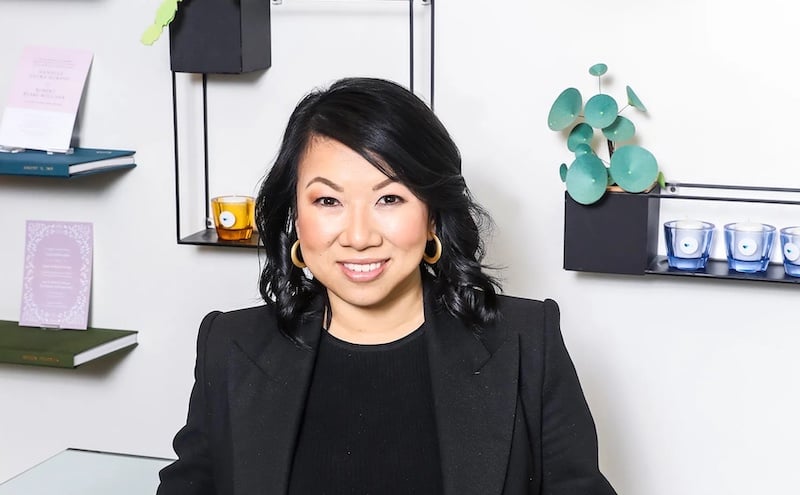
Image: Refinery 29
4. Shan-Lyn Ma: Zola
Armed with a vision to revitalize the $72 billion dollar wedding industry, Shan-Lyn Ma founded zola.com in 2013 to combine helping couples plan the big day with modern technology. The website features a suite of bridal tools including free wedding websites, registries, guest list managers, bespoke save the dates and invitations, and even personalized “Zola Advisors” to walk you through the process.
Having originally immigrated from Singapore to Australia, and then moving to the US for business school, Shan-Lyn worked diligently to rapidly make connections and make her way through the corporate world. “It wasn’t—and still isn’t—easy, but I’m proof that there are no barriers except for the ones you artificially put on yourself,” she said. Since its founding, Zola has had over half a million customers on its platform, raised over $140 million in funding, opened a pop up shop in New York City, and Shan-Lyn herself personally invests in other female-founded businesses.
“I think every founder has to be a motivational leader in order to build a great team and business. I do feel an extra responsibility to show it’s possible to be a woman, be a respected leader, and run a fast-growing startup. I’m lucky to be a part of a growing community of female founders who I have to lean on for advice.”
Lessons from Shan-Lyn Ma
1. Feedback is a gift: Always gather differing perspectives on ideas far before they take flight
2. Ask yourself: Can the idea be bigger? Can it be even bigger than what you are thinking about right now?
3. Before you expand: Take time to build the core of your business is about and become confident in it

Image: Saunak Shah
5. Payal Kadakia: ClassPass
Payal Kadakia is the founder of ClassPass, a fitness subscription service, privately held start-up that is valued at over $1 billion, recently acquired by Mindbody Inc.
Payal Kadakia started ClassPass in 2011 as a result of countless hours being spent in front of her computer trying to find an online ballet class close to her. To her surprise, she couldn’t. And on top of that, the section available was complicated and scattered. Every company had different schedules, prices, packages and levels she could join at.
ClassPass took many shapes and forms until it became the behemoth we know of today. Payal Kadakia tested different ideas and solutions to the same problem – in true lean startup form. The first one was Classivity – a search engine for dance and fitness classes. However, despite countless classes listed, no one was using it, no one was booking any classes.The second one was Passport – helping customers package together a month of these free classes at different studios. With Passport, less than 15% of people were choosing to pay for the product.
After listening to customers and studio owners, she fell upon the idea of ClassPass and launched it in 2013. Kadakia explained, “I didn’t want to build a product for a month. I wanted to build a lifestyle. And the biggest thing we’d discovered was people loved variety. The trend we’d hit on was that fitness could be fun and exciting and something new that people want to do.”
Lessons from Payal
1. Follow your purpose. Kadakia was a dancer, deep down. She not only was the customer, but understood the positive impact of what she was building. That helps you push through when it gets tough and truly build something life-changing.
2. Listen to your customers. Feel stuck? Ask them what their problems are and what they need to solve it. The go and build it for them.
3. Keep pushing to innovate. The first idea is very rarely the final one. Never give up and keep innovating.
These women, and so many more within the CREOATE community, continue to inspire us with their glass-ceiling-shattering innovation and boundary-defying drive. Who’s a female founder you look up to?
Not registered with CREOATE yet? Sign up now and start shopping wholesale with us today.
Read more articles:
Browse Popular Categories at CREOATE: Wholesale Jewellery | Wholesale Gifts | Wholesale Stationery | Wholesale Beauty Products | Wholesale Mugs | Wholesale Homeware | Wholesale Pet Supplies | Wholesale Gourmet Food | Wholesale Garden & Outdoor | Wholesale Baby & Kids Products
Browse Trending Collections on CREOATE: Wholesale Halloween | Wholesale Mother's Day Gifts | Wholesale Father's Day Gifts | Wholesale Valentine's Day Gifts | Wholesale Spiritual Supplies
>> View all


